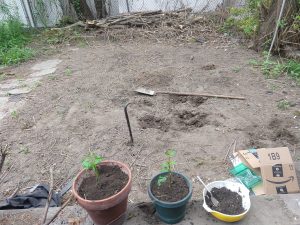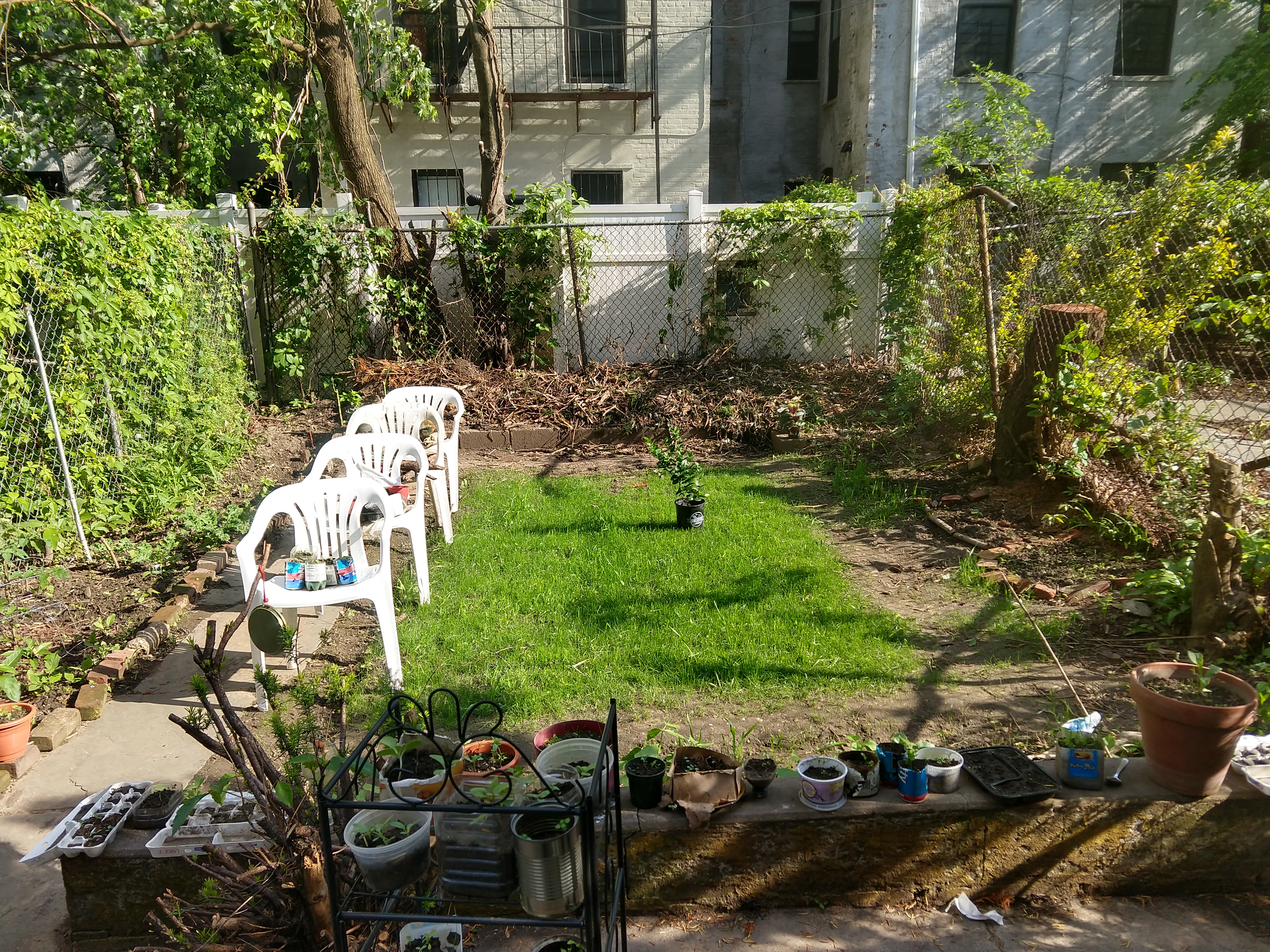So, I’ve mentioned on the home page that I’ve gotten into gardening this year. And I love it. You still mess with plots. You create actual life (sort of), and you nurture it, and you’re rewarded with better air, maybe some food, something beautiful, and you’ll feel smart.

There are people out there who know that writers need work, and that writers need to live their lives. You can not be a 24/7 keyboard jockey and expect perfect manuscripts. For me, living life well and thinking about it deeply is the key to destroying writer’s block.
Well, I’ll wager that gardening is perfect work for most writers. Let’s put the money thing aside, and just focus on the labor aspect, because I’m confident it synergized with edits I’ve made on my biggest and best manuscript so far. And here’s why:
- Meditative. It DOESN’T take all your mental energy to make life with dirt. Maybe there’re parts where you have to concentrate, but compared to some of the money-making positions I’ve worked, from being an excel jockey to bartending in the weeds, it lets your mind wander.
- Biology. Because biology. Humans were meant to enjoy the color green, dang it. The exercise involved, the daylight you’ll absorb, and even certain bacteria in the dirt that you’ll inhale all trigger one thing: a flood of monoamines — especially serotonin. And that keeps us happy, and thinking. They just did another study verifying that depressed brains age faster, and the corollary of that is, brains that feel good live harder.
- Dishapwine. If you want to turn a hole into a garden, you have to keep at it regularly. And it gets easier. And I got a bigger take-away than just the green that I was expecting.
I’ve got to imagine that new writers, so often, put too much in their first drafts. I also know that new gardeners might put too much in the dirt. Hey, when seeds are 50 cents, it’s tempting to GROW ALL THE THINGS.
But that means you’re going to need to thin plants (or do what I keep doing, and give them to neighbors.) The act of thinning is an act of editing. You have to choose the strongest that you’ll let survive. You have to get a little merciless, and decide which seedlings won’t make it (or again, are going next door.) You have to accept that sometimes, to get your roots strongest, you’ve got to kill your darlings.
This is tough for anyone who is doing something new, working with a lot, and excited about it. But I don’t think America is in an age where people want to read your 200k word first draft. I don’t think every story needs a HAPPY ending. I do know, every story’s important characters need to bloom, or get out.
This is what gardening teaches, too.
So I’ve got a manuscript with so, much potential. I know this deep down in my soul, just like a panda knows it likes shoots and leaves. And this relates to how any plot has potential, because before I could get to work growing, I had to clear it. (Let’s just say, when I moved in, the place had a scummy, dismal vibe.) I needed to take an actual machete to the overgrowth before I could even get that dirt fertile. As a result, the machete’s become my favorite tool, and that’s not because I’ve got a sword fetish. It’s because machetes are dang useful, and the destruction they’re capable of can make needed room.
So again, if you’re an aspiring writer, if you’re looking for something to do that isn’t writing, but’ll bear some transferable elements to your writing, try gardening. Try potted plants. Grow some basil and enjoy how much better they’ll make your eggs. Get good at it, and I’d bet dollars to beans it’ll make you a better writer, too.
